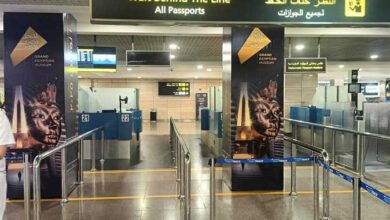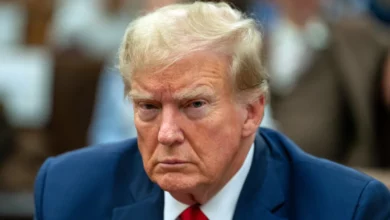All dictatorships throughout history have relied on the ruthless support of security apparatuses. The situation in Egypt from the late twentieth century until the present has been no exception. The recent parliamentary elections are a stark example of the increasing role of security officials in Egyptian politics.
Rather than just intimidating the Egyptian opposition as they normally do, several security officials this year have left their posts to move into the legislative branch of government.
The National Democratic Party (NDP) counts forty former police generals in its parliamentary majority; together these men represent nearly one tenth of Egypt’s parliament. This unprecedented phenomenon suggests that Egypt is on the verge of becoming a police state par excellence.
The number of high-ranking police officers in parliament has been doubling on average with every parliamentary term. If this pattern continues, we can expect them to reach 80 by the 2015 parliament.
The Egyptian police is a quasi-military institution characterized by principles of discipline and control. We should not expect any political progress or change from a parliamentary bloc dominated by such people.
Any attempts at political creativity and change over the past decades have been killed by President Hosni Mubarak’s regime in the name of “stability”. The head of parliament hasn’t changed in two decades and the interior minister has been the same for 13 years (i.e. longer than any other interior minister in Egypt’s modern history). Virtually all ten presidential appointees in parliament, with the exception of two or three, have remained unchanged. Thus, Egypt is at a political impasse.
When the Soviet Union collapsed in 1991, Western researchers analyzed the causes behind this political meltdown. Testimony from security officials in former Eastern bloc countries, especially ex-KGB members, showed that security forces maintained political control in their countries by giving important executive positions to individuals with records of financial or administrative corruption, or who were suspected of spying for a foreign entity. This was done so that security could intimidate and blackmail the politician when necessary.
A whole generation of Egyptian security officials trained in the 1950s and 1960s by their Soviet Counterparts may have adopted the same mentality. It's important that social and political science researchers monitor these 40 generals over the next parliamentary term, and pay close attention to the committees they join, the bills they introduce, their voting patterns, their district activities and their public behavior.
Through my own personal experience, including the time I spent in prison, I have found some Egyptian security officials to be noble and intelligent individuals, for example Maj. Gen. Ibrahim al-Faham, Maj. Gen. Mohammed Khudair, Maj. Gen. Assem Abdul Majeed, and Maj. Gen. Hossam Ibrahim.
I can only hope that my concerns about the growing influence of former police officers in parliament are misplaced and that these newly-elected individuals can in fact improve the country’s security services and change their negative image.
Translated from the Arabic Edition.



